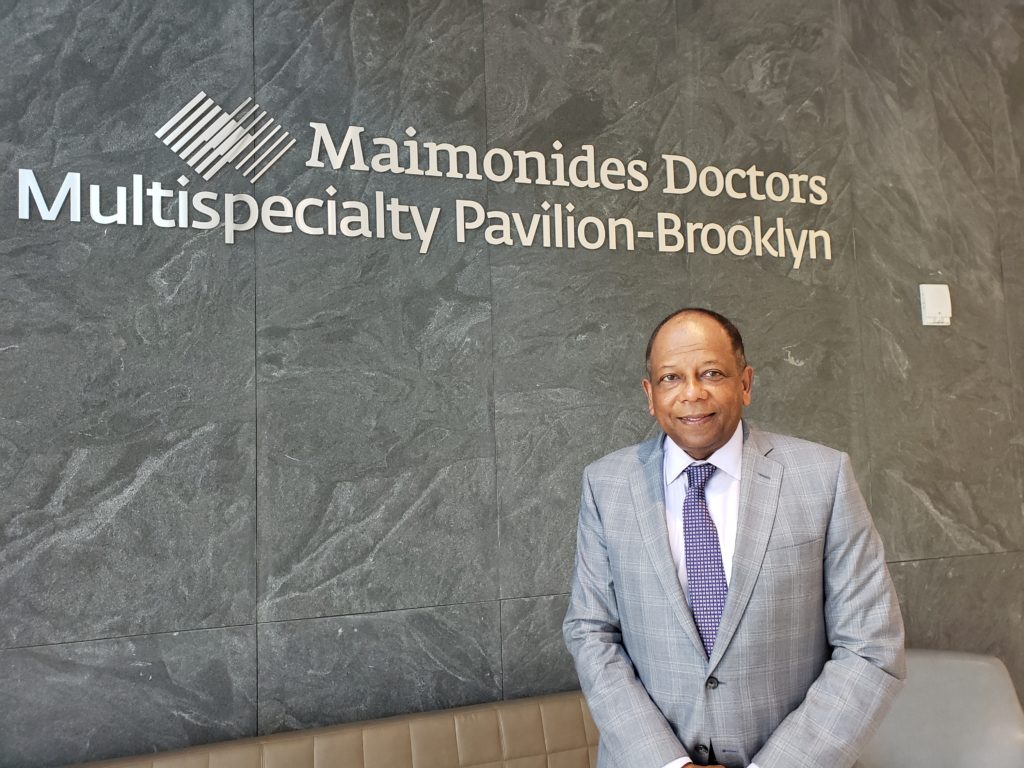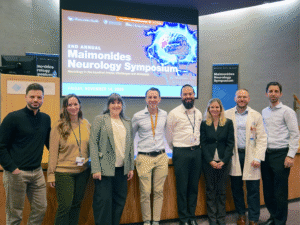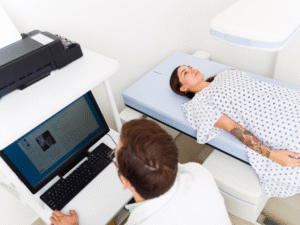It’s been over a year since Dr. Anthony Kalloo became the Chair of the Department of Medicine at Maimonides Medical Center. In this role, he is responsible for more than 70 faculty and 250 staff physicians in 13 divisions and interdisciplinary centers. During this time, he’s been focused on increasing staff, expanding clinical programs and services, and enhancing research capabilities.
Prior to Maimonides, Dr. Kalloo spent more than 30 years at Johns Hopkins University, where he spearheaded endoscopy research and pioneered incisionless gallbladder surgery. He’s had more than 200 studies published in peer-reviewed medical publications, and acquired more than 100 patents. He entertained offers from all over the world before deciding to come to Maimonides.
Uniting for better care
One of Dr. Kalloo’s chief objectives is to create and fortify the Department of Medicine.
In the coming months, Maimonides Medical Center will launch an osteoporosis and metabolic bone disease center—the first of its kind in Brooklyn. Specialized centers allow an institution to offer highly specialized expertise and services for complex diagnoses. They can also bring a hospital prestige as both a treatment and research institution—something Dr. Kalloo intends to bring to Maimonides.
He’s deeply involved in developing a swallow center that will bring together ENT surgeons, gastroenterologists, radiologists, and thoracic surgeons. He expects to have it up and running later this year. More specialists are being added to the Pelvic Floor Center as well.
Organizing for growth
Devising the infrastructure for new specialized centers includes recruiting doctors and staff, as well as developing robust processes and logistics to support delivery of the highest quality, multidisciplinary services and care.
Dr. Kalloo has been evaluating staffing roles and functions, and calculating personnel needs to create plans that ensure exceptional patient care for both inpatient and outpatient environments. His focus also includes training new and existing personnel to be “customer-friendly and service-oriented.”
“If you don’t have those things in place, it doesn’t matter how great your physicians are,” Dr. Kalloo explained.
Additionally, Dr. Kalloo is working to optimize physician productivity and time spent directly on patient care. These initiatives aim to improve operations and ultimately boost capacity to allow the department to meet increasing demand and serve more patients.
Research and teaching
Dr. Kalloo also wants to use his expertise to further enhance Maimonides’ standing as a leading research institution. “We already have a world-class staff adept in treating rare diseases from people across the globe,” he said. “But I don’t think the community as a whole is aware of how great the clinicians are here.”
Currently, he is evaluating and enhancing Department of Medicine residency programs, working with lead faculty to provide innovative education in a collaborative community and an excellent training experience through a balance of academic and clinical activities.
“We have to teach people to do research,” he said. “That’s one of the things I do well.”
Research isn’t only about what doctors at Maimonides can discover, Dr. Kalloo said.
“It’s one thing to do a study, but it’s another to advance medicine,” he added. “I really want to make that a more powerful part of who we are. This is a critical part of us becoming national leaders.”
Under the leadership of Dr. Kalloo and other Maimonides team members, Maimonides is steadily building to solidify its reputation as an innovative health system that delivers compassionate patient care on the national stage.




